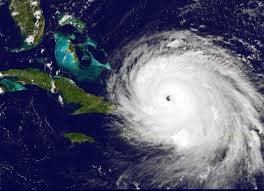Natural Disaster Resources for Educators, Students, and School Administrators
What to do when schools reopen in areas damaged by Hurricane Irma? Suggestions for teachers and school administrators
School Counselor Tip of the Month:
By Patti Ezell, M.Ed., M.A., Licensed Professional Counselor, Licensed Marriage and Family Therapist
These suggestions are based on my years of experience as an educator and as a counselor and therapist, as well as my work in the aftermath of Hurricane Katrina and Hurricane Rita. I shared a few of these yesterday with my treasured school in Houston, but I have expanded the list today for a wider range of schools. You will have to use your best judgement as to what will work in your setting, but I offer them with all the love and respect in my heart for fellow colleagues and educators dealing with this crisis.
1.) To start....remember that everyone in your area has been impacted by this trauma, whether they flooded or not. It now takes tremendous physical, emotional, mental and spiritual energy to do simple daily tasks. No one can function on "auto-pilot" ....even getting to school will take extra thinking and planning.
2.) Stress affects each person differently and it makes multi-tasking very difficult. Remember this is true for all administrators, faculty, staff, students and parents. Everyone will need to be gentle with each other and live offering each other grace.
3.) During the first week back, focus on simply helping students get back into the routine of school. Remember, everyone in their household is also adjusting so returning to the school routine will be good, but it will also be very challenging.
4.) Greet every student with warmth as they re-enter and tell them how glad you are that they are here.
5.) Main classroom teachers and homeroom teachers may want to open with a brief comment about the storm, but focus on the relief and joy of being back together and ready to work together on "things we know how to do" instead. "We know how to do school, so let's do school today. It will feel good."
6.) Some students will want to share their storm stories, but be aware that letting students share stories and things they have heard in the news may also serve to increase anxiety for many other listeners. Contact your school counselor for guidance and ask them to talk with those students who especially need to be heard. They may want to organize groups to share stories rather than making your classroom an open forum or they may be willing to schedule a time to visit each classroom to check in on the students.
7.) If a student becomes emotional in class, be empathetic, kind and reassuring, but avoid over-reactions. Assure the student that you understand and that feelings are a part of healing - even adults have similar feelings - but explain that focusing on the next thing in the classroom routine will also bring relief and healing. Avoid overreacting either way....avoid over-sympathizing and avoid being cold.
8.) Review the material you covered before the storm. The stress of the storm will have affected the students' retention of that material. So start over and do so with patience and assurance.
9.) Do not introduce new material for at least a few days. When you do start introducing new material, do not resume your normal pace.
10.) Do not shift into "we are behind mode!" You will not be able to follow the pace of last year. You may slowly regain a closer-to-normal pace in the weeks ahead, and you may even catch up a little, but if you start obsessing on the pace, you will add significant stress to your students. Prioritize how to spend your time.
11.) Many of your students are probably tired as they are trying to process all that has happened. Many of them may not be sleeping well at night whether they were flooded or not. Be mindful of the need for breaks. Remember you are also tired and so are the parents.
12.) Please, please completely erase any thoughts you might have about sending home make-up work to help catch your class up on what was missed while closed. This is definitely not the time for much homework or any extra projects.
13.) Please encourage more comforting and lighthearted literature and stories in the months ahead. This is definitely not the time for dystopian or apocalyptic type story lines. As a therapist, I already have concerns about the amount of dystopian literature young people are being given to read in classrooms. In the aftermath of disaster, they need warm stories of love, faith, healing and hope.
14.)Teach students good self-care strategies: sunshine breaks, drinking lots of water, eating healthy snacks, yoga stretches, exercise, laughter.
15.) Remember helping these students gain a sense of safety, calm, and "normalcy" is your first priority.
16.) Monitor your own stress and emotions. If you are struggling at any point, ask a colleague or administrator for help.

